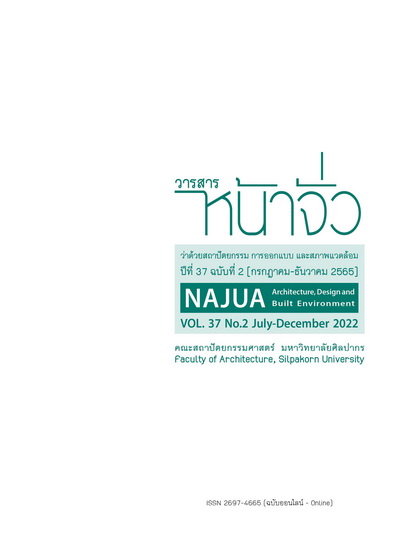A Study of non cognitive skills found in construction project managers inherited success factors in managing a project
Keywords:
Construction Project Manager, Cognitive Skills, Non Cognitive Skills, Success FactorsAbstract
This research aimed to study 1) relationships between construction project managers’ Non Cognitive Skills (NCS): Self Resilience, Self Control, and Social Skills and the success factors in managing a construction project 2) relationships between NCS and construction project managers’ characteristics. The data were collected from 60 construction project managers (CPM) using a closed-ended questionnaire and analyzing using statistical tools.
The results showed that the amount of success factors possessed in CPM correlated with Self Resilience, Social Skills on Social Control at a moderate level; while Social Skills (Emotional Sensitivity, Social Expressivity, Social Sensitivity) were related at a low level. The CPMs with a master’s degree education had higher Social Skills in Emotional Expression than a bachelor’s degree (or equivalent) and the CPMs with a master’s degree education had higher Social Skills in Emotional Sensitivity and Social Sensitivity than the CPMs with a diploma degree.
References
Attewell, P. (1990). “What is skill?”. Work and occupations. (Vol. 17(4)).
Borghans, L., Duckworth, A., Hechman, J., & Ter Weel, B. (2008). “The economics and psychology of personality traits”. in Journal of Human Resources. (43(4)), 972-1059.
Boyatzis, R. E. (2007). “Competencies in the 21st century”. in Journal of Management Development, 5-12.
Cochran, W. G. (1977). Sampling techniques. (3rd ed.). New York: John Wiley & Sons.
Granger, & Noguera. (2015). “College readiness and urban schools”. Handbook of Urban Educational Leadership, 470-479.
Green, F. (2011). What is skill? An inter-disciplinary synthesis. Centre for Learning and Life Changes in Knowledge Economies and Societies.
Gutman., L. M., & Schoon, I. (2013). “The impact of non-cognitive skills on outcomes for young people”. Education Endowment Foundation, http://educationendowmentfoundation.org.uk/uploads/pdf/Non-cognitive_skills_literature_review.
Lipnevich, A., MacCann, C., & Roberts, R. (2013). Assessing non-cognitve constructs in education: A review of traditional and innovation approaches. Oxford Hand books Online.
Nicha Botong. (2014). [kansưksa kanpriapthiap thun manut khong bukkhalakon phak rat læ phak ekkachon thi song phon to raidai nai anakhot korani sưksa : ongkon nai phak tawan ok chiang nưa] (in Thai).
Pokpong Jantawit, & Suppanat Sasiwutthiwat. (2013). “[Kan Pattana Toon Manut Pue Palittapap], (in Thai) (Human Capital Development for Better Productivity)”. TDRI: Seminar New Development Model: Towards Quality Growth Based on Productivity Improvement.
Parinya prompool. (2009). [Kansưksa patchai khwamsamret khong phuborihan nai khrongkan kosang]. (in Thai) King Mongkut University of Technology Thonburi.
Sasithorn Henngam, & Jongrak Hongngam. (2014). “[Patchai dan thaksa khong rængngan thi song phon to raidai khong rængngan nai sathanprakopkan khanat klang læ khanat yom nai khet Amphœ Mưang changwat khon kæn] (in Thai) Determining skill types affecting labor income in small and medium enterprise: An empirical analysis of Mueang district, Khon Kaen province”. in Journal of Economics and Management Strategy, 52-62.
Thansinee Laosom. (2021). [Kan Wat NON-COGNITIVE: Panha Lae Kwam Ta Tai], (in Thia). Retrieved from https://www.stou.ac.th/offices/ore/info/cae/uploads/pdf/636421016971025747.pdf
Zhou, K. (2016). Non-Cognitive Skills: Definitions, Measurement and Malleability. Paper Commissioned for the Global Education Monitoring Report 2016, Education for People and Planet: Creating Sustainable Futures for All.
Downloads
Published
How to Cite
Issue
Section
License

This work is licensed under a Creative Commons Attribution-NonCommercial-NoDerivatives 4.0 International License.





